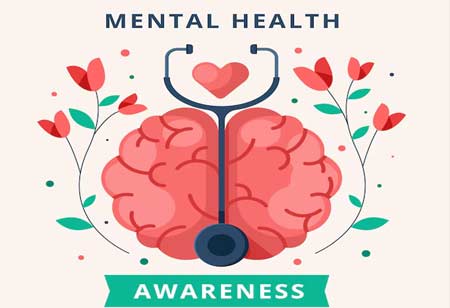THANK YOU FOR SUBSCRIBING
Be first to read the latest tech news, Industry Leader's Insights, and CIO interviews of medium and large enterprises exclusively from Hrtech Outlook
THANK YOU FOR SUBSCRIBING

By
HR Tech Outlook | Wednesday, October 15, 2025
Stay ahead of the industry with exclusive feature stories on the top companies, expert insights and the latest news delivered straight to your inbox. Subscribe today.
Fremont, CA: Organizations are increasingly concerned about the cost of employee disengagement since about 80 percent of workers globally are either not engaged at work or actively disengaged from it. Disengagement raises staff turnover rates in addition to having an adverse effect on productivity. To tackle this issue, it is important to understand employees' emotional landscape and cultivate a psychologically secure and inclusive workplace.
Employee engagement is one of the most important factors affecting an organization's performance. Employee engagement and morale may be greatly increased by offering comprehensive wellness initiatives, work-life balance, chances for professional growth, mental health assistance, diversity and inclusion, and an attitude of appreciation and acknowledgment. Open and honest communication is essential in this situation since it builds trust and motivates staff to give their best for the company.
Programs that promote resilience and healthy daily habits have made mental fitness a powerful tool for increasing employee engagement. Their responsibilities go beyond treating mental health concerns; they also include enhancing employee engagement and experience. To guarantee that every employee may prosper, these programs must be carefully designed with inclusion and accessibility as the main priorities.
Creating a program for mental fitness necessitates a comprehensive strategy that considers emotional, mental, and physical health. The program's efficacy depends on having defined goals and criteria for success. An organized program improves morale, raises output, decreases absenteeism, saves healthcare expenses, and aids in attracting and retaining top personnel. A Plan-Do-Check-Act assessment methodology guarantees the program's continued relevance and efficacy.
A two-way accountability strategy between the company and the employee is necessary for the success of a mental fitness program. This strategy creates a culture that prioritizes employee well-being by guaranteeing all parties are involved in the program. The ultimate objective is to build a resilient and motivated team that can benefit the company.
To promote mental well-being, organizations must engage proactively. Wellness initiatives may improve productivity and morale, reduce stress, build relationships within the workplace, and improve workplace culture—all of which can increase employee loyalty. Consistently producing high-quality work is more likely among employees who feel appreciated and encouraged. Holistic wellness initiatives may support workers in adjusting to the increasing demands of the workplace, leading to a happier, healthier, and more dynamic workforce.



